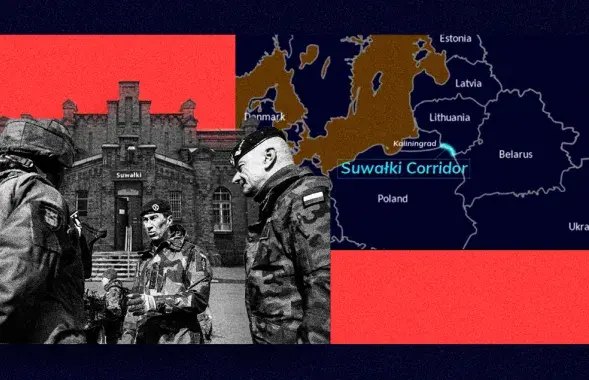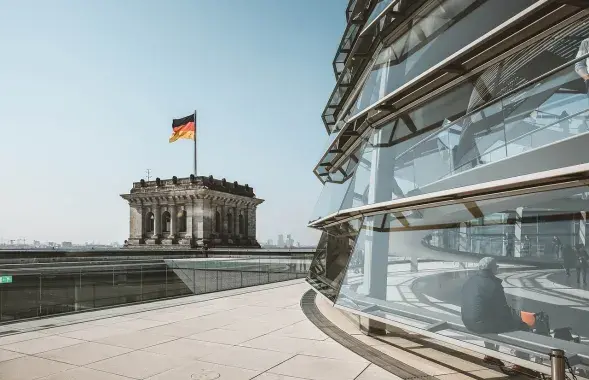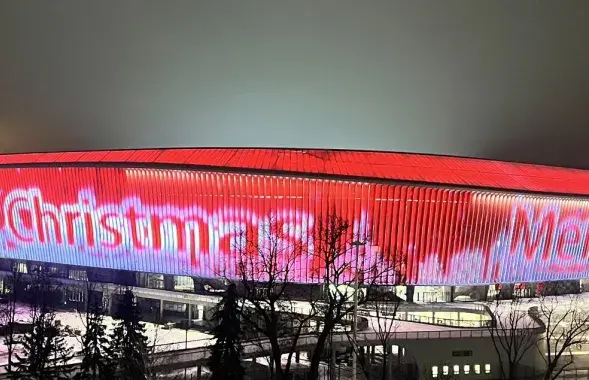Wi-Fi to appear in clubs and cafes
A new Internet standard will be introduced in Minsk hotels, cafes and terminals in July. The European Radio for Belarus has tried to find out who will have to pay for it – cafes or clients. The fact that the only owner of a license for Wi-Fi – the Beltelecam Company – is going to introduce payment for the service was an unpleasant surprise. But ERB found out that there were some variants too.
Wi-Fi is part of a modern megapolis all over the world. The new standard allows connecting to the Internet without any wires. At the moment you can connect your notebook or PC to the web in several Minsk cafes.
Alyaksei Fedarenchyk, the head of Beltelecam’s press service, informed ERB that it will be necessary to buy special cards to pay for Wi-Fi.
“There will be per-megabyte tariffing. If you are in a hotel and have an access card you will only need to use your login and password and you will have to pay only for the traffic. The cost of Wi-Fi will not be similar to the cost of ByFly – the broadband Internet trademark”.
At the moment Wi-Fi can be found in several Minsk cafes. “Beltelecam explained that either cafes would be paying for traffic or clients would have to buy access cards at “Belsayuzdruk” kiosks on their way to the café. In a café decides to pay for traffic it will have the right to decide whether the traffic will be free for its clients or not. Alyaksey Fedarenchyk continues:
“Cafes having free access to Wi-Fi cannot demand money for it now because they do not have a provider license. So anyone can install a Wi-Fi point. It’s up to the owners to decide whether they will demand to use access cards or include the cost of traffic in the price of their services”.
ERB turned to Kiryl Valoshyn, director-general of the portal Tut.by, to find out what will be better for consumers. According to him, Wi-Fi is usually included in the price of a dinner or a hotel suite abroad:
“In foreign hotels you can have free Wi-Fi if you live in a first class suite or it can be a separate service. It also concerns cafes and restaurants – they normally provide free access but you have to order something to use it.
For example, I know that students come to the “Izyum” club, order a juice and start downloading by Wi-Fi while drinking. At the same time I think it’s inconvenient for hotels. The only way out is to sell access cards in hotels. Foreigners should not look for “Belasayuzdruk” kiosks to buy an access card!”
The administrator of the club “Izyum” Tatsyana says that the users of the wireless Internet often make minimum orders just to use Wi-Fi:
“About 10 people a day come to use Wi-Fi. They normally stay for about two hours and order a coffee or a salad. But there are those who come to eat even among Wi-Fi users. In general it’s 50/50. But if they come only because of the Internet they order a coffee:
A popular Minsk café “London” also has a Wi-Fi point. The café agrees to free access to Wi-Fi too. The administrator Andrei says it will be like going to the toilet:
“There is Wi-Fi and it is absolutely free. Using the Internet is like going to the restroom. You don’t have to pay for using the restroom in a café, do you?”
Wi-Fi is part of a modern megapolis all over the world. The new standard allows connecting to the Internet without any wires. At the moment you can connect your notebook or PC to the web in several Minsk cafes.
Alyaksei Fedarenchyk, the head of Beltelecam’s press service, informed ERB that it will be necessary to buy special cards to pay for Wi-Fi.
“There will be per-megabyte tariffing. If you are in a hotel and have an access card you will only need to use your login and password and you will have to pay only for the traffic. The cost of Wi-Fi will not be similar to the cost of ByFly – the broadband Internet trademark”.
At the moment Wi-Fi can be found in several Minsk cafes. “Beltelecam explained that either cafes would be paying for traffic or clients would have to buy access cards at “Belsayuzdruk” kiosks on their way to the café. In a café decides to pay for traffic it will have the right to decide whether the traffic will be free for its clients or not. Alyaksey Fedarenchyk continues:
“Cafes having free access to Wi-Fi cannot demand money for it now because they do not have a provider license. So anyone can install a Wi-Fi point. It’s up to the owners to decide whether they will demand to use access cards or include the cost of traffic in the price of their services”.
ERB turned to Kiryl Valoshyn, director-general of the portal Tut.by, to find out what will be better for consumers. According to him, Wi-Fi is usually included in the price of a dinner or a hotel suite abroad:
“In foreign hotels you can have free Wi-Fi if you live in a first class suite or it can be a separate service. It also concerns cafes and restaurants – they normally provide free access but you have to order something to use it.
For example, I know that students come to the “Izyum” club, order a juice and start downloading by Wi-Fi while drinking. At the same time I think it’s inconvenient for hotels. The only way out is to sell access cards in hotels. Foreigners should not look for “Belasayuzdruk” kiosks to buy an access card!”
The administrator of the club “Izyum” Tatsyana says that the users of the wireless Internet often make minimum orders just to use Wi-Fi:
“About 10 people a day come to use Wi-Fi. They normally stay for about two hours and order a coffee or a salad. But there are those who come to eat even among Wi-Fi users. In general it’s 50/50. But if they come only because of the Internet they order a coffee:
A popular Minsk café “London” also has a Wi-Fi point. The café agrees to free access to Wi-Fi too. The administrator Andrei says it will be like going to the toilet:
“There is Wi-Fi and it is absolutely free. Using the Internet is like going to the restroom. You don’t have to pay for using the restroom in a café, do you?”



















